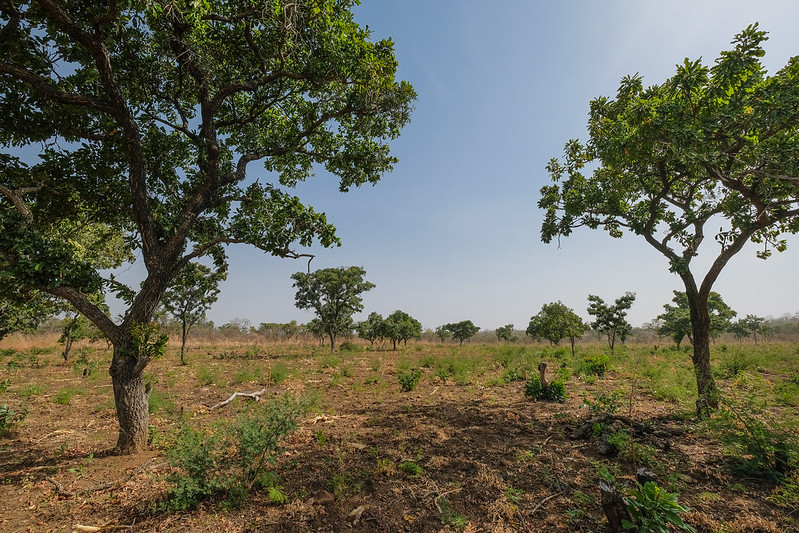By Mathurin Zida

Research and data collection that will culminate in journal articles, plus discussions with partners towards effecting both a community-based citizen science initiative and a locally developed theory of change (ToC) for the Western Wildlife Corridor (WWC), have all been conducted in the past seven months by the COLANDS Ghana team.
Between March and September 2023, the team completed an assessment of land use and land cover change (LULCC) in three Community Resource Management Areas (CREMAs) in the country’s WWC: Builsa Yenning (BY), Moagduri Wuntaluri Kuwosaasi (MWK), and Sanyiga Kasena Gavara Kara (SKGK).
The team also conducted biodiversity assessments of vegetation, birds, and insects in those CREMAs and has drafted articles for publication in academic journals in the near future.
Free listing exercises were carried out between March and September 2023 of both flora and fauna species, as an initial step in a community-based citizen science initiative to monitor biodiversity in CREMAs with focus on traditional ecological knowledge (TEK). Free listing is a technique used to gather information grounded in TEK, and the Ghana team focused specifically on flora and fauna species known in the landscape, as well as those related to basic requirements such as food, medicine, and firewood. The first round of data collection in communities occurred in March 2023 and a second in September 2023.
COLANDS also assessed capacity gaps in all six CREMAs in the WWC. That included analyses of governance structures, in terms of their capacities to play their institutional roles and to effectively participate in multistakeholder processes in the framework of integrated landscape approaches (ILA). Recommendations that have been made to address the capacity gaps will be shared with stakeholders.
With the aim of promoting gender equality and social inclusion (GESI) considerations in ILAs, COLANDS contributed to the design, and facilitated the implementation, of a study of gendered access to landscape resources and the inclusion of women in landscape governance in the WWC. Findings will be published in journal articles as well as shared with practitioners and policymakers in various formats.
In mid-June, COLANDS participated in a national learning exchange on landscape and jurisdictional approaches across Ghana, organized by the CIFOR-led Governing Multifunctional Landscapes (GML) project and held in Accra. There, the COLANDS team shared its experience with multistakeholder processes for sustainable landscape governance in the WWC, with participants from NGOs and community service organizations (CSOs), local and national governments, research, academia, and the private sector.
Meanwhile, joint proposals have been developed with national partners to seek funding to support the implementation of a theory of change developed by stakeholders to transform the WWC according to a shared vision. A validation workshop with stakeholders is planned for later in 2023.




